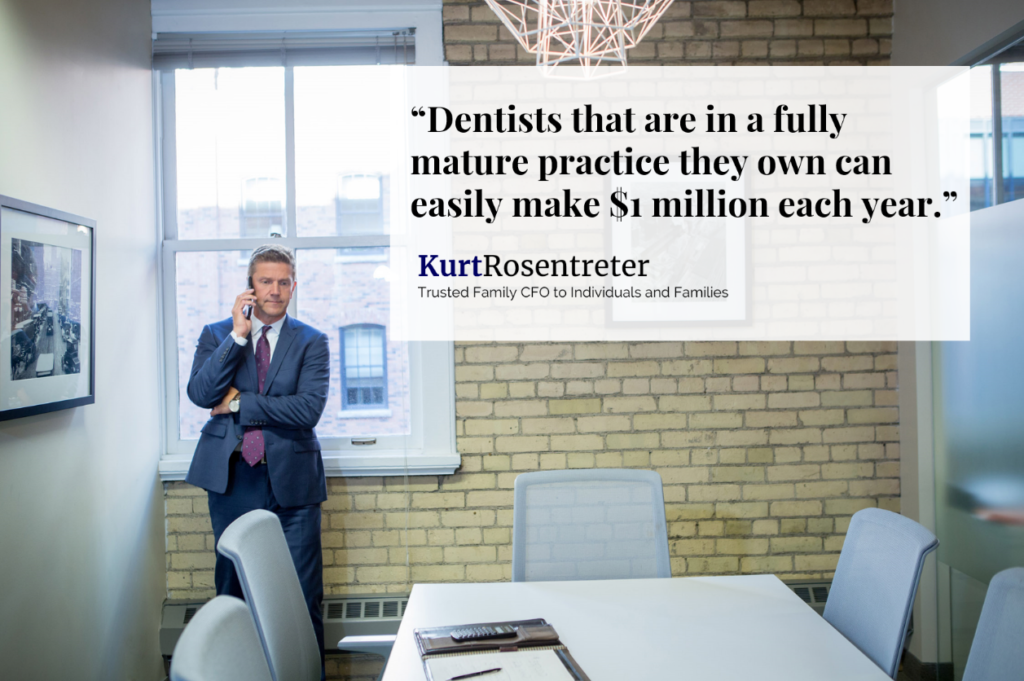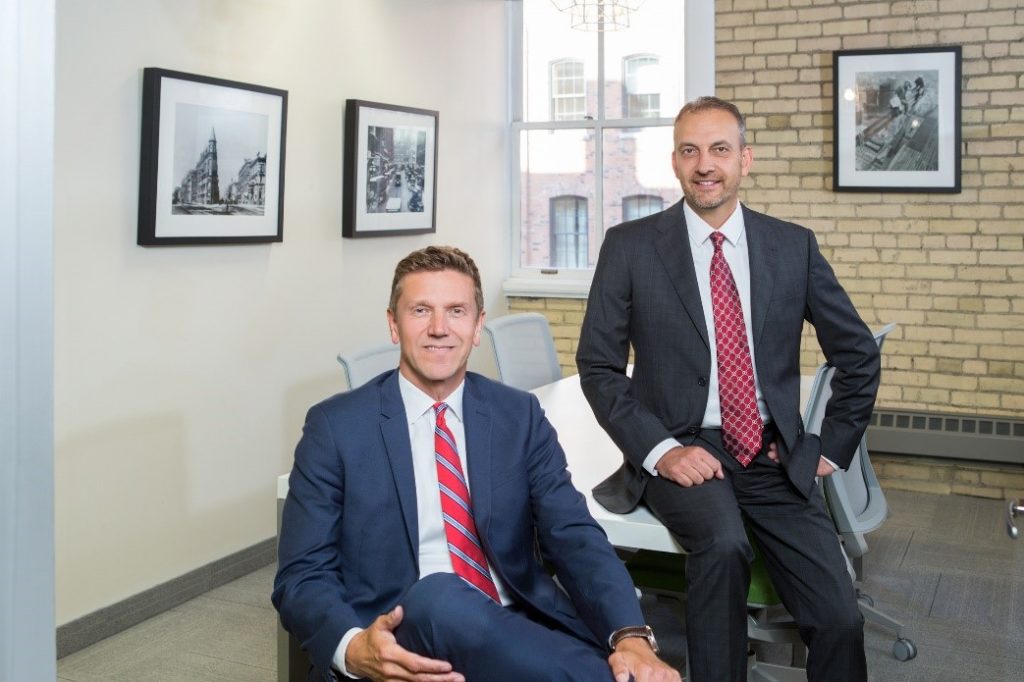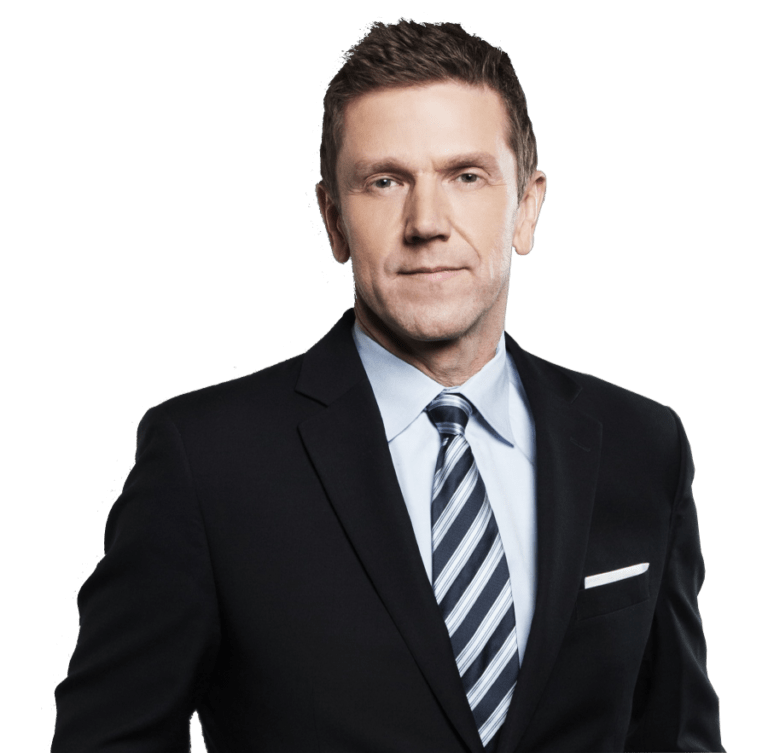
In the Kingdom of the Crystal Skull, Indiana Jones had to figure out which stones in a pathway to step on to reach his goal and to avoid falling to his death. Avoiding financial mistakes as a dentist involves making similar judgment calls over a career of 30 years.
From my vantage point as a Chartered Accountant and Financial Planner to dentists and specialists of all ages and stages across Canada for 25 years, I have seen all the strategies, all the product pitches, all the accounting and tax moves and all the personalities and goals.
I want to share my thoughts in an article that I hope as a young dentist or specialist will help you to “step on the right stones” as your career moves ahead.
I’m offering the following tips in no particular order – they are all equally important.
Failing to build a support team of advisors without enough due diligence.
Accountants with no experience with dentists, have high fees and offer no proactive planning discussions all year long. Insurance agents that have no “off button” and push to sell you insurance policies at every turn.
Investment advisors embellishing their own pockets by selling mutual funds or boiler room money managers selling you trashy, unknown investments that blow up.
If your fellow dentists are using these people too don’t assume properly vetted – it just means you will follow them over the cliff. Avoid the same money mistakes most dentists make and be critical.
Agreeing to buy the first products pitched at you.
There is specialized disability insurance designed for dentists. Mortgages at the bank are rarely the lowest rates. I don’t know why anyone would buy a segregated fund. Rental condos may be far from a good investment.
Auto leases can be the most expensive form of financing. When it comes to products, slow down, shop around and get a second opinion. Don’t buy a product until you have an overall financial plan and well-defined goals.

Failing to establish goalposts on a 30-year career before you start.
Every sports metaphor starts with the finish line in mind. You need to make decisions about:
- Buying a practice
- Selling a practice
- When to save to an RRSP
- How much to save for kids
- When to be debt-free
- When to get a nanny
- How much income to save vs. spending
- And more…
You need to start with the end goal in mind.

These end goals should have timelines (best guesses) attached to them, they should be costed out and your strategies and product purchases from then to now aligned with what you want to achieve.
Pause annually to check your status on progress towards these written goals. Fire any advisor that doesn’t do this.
Failing to approach your money and goals as an integrated plan.
- How long you work affects how long you can help kids.
- Whether you buy a practice affects how big a house you can buy.
- Being debt-free impacts your ability to save inside a corporation.
- How long you have life insurance depends on the number of kids you have.
Your personal finances consist of the inter-connectivity between as many as ten different areas: retirement, cash flow, real estate, taxes, estate, insurance, investments, kids, elderly parents, career plans and more.
Plans and decisions should take all of this into consideration each time a significant decision arises.

Putting offence before defense.
Defence means protect what you have first. Don’t be a fool. Get your Will and Powers of Attorney prepared at a young age. Get a proper needs analysis done by an insurance expert who is a CLU representing at least five insurance companies to assess how much life and disability insurance you need and evolve this as life changes with you.
Keep a good lawyer at hand to guide against legal liability in your practice (e.g. credit proofing), in your car, with your spouse (e.g. divorce proofing) and with business partners. Limit your debt exposure to something that won’t crush you.
Buying a second practice, purchasing rental real estate, opening an RRSP, and purchasing the expensive car should wait until you have dotted the I’s and crossed the T’s on all of your core defensive planning first.
Incorporation Woes.
Should a 35-year-old dentist incorporate their practice? From a financial planning perspective likely not.
A cash flow perspective? Likely not. A fees perspective? Likely not.
From an estate perspective, likely not.
From a legal perspective, perhaps – talk to your lawyer about whether the legal concerns outweigh the rest.

Failure at basic budgeting, saving and financial goal definition.
If you don’t want to be age 65 and still working full time because your savings are inadequate to match your spending, then listen up here.
Dentists that are in a fully mature practice they own can easily make $1 million each year.
That’s a lot of money for cars, trips, big houses, nannies and vacation real estate. However, failing to save a large (and I mean massive) amount of your income annually during your working years, as well as getting rid of debt quickly could leave your retirement years without adequate resources to maintain the lifestyle you have so come to enjoy.
Know how you spend money. Save and save some more. Don’t use debt as a crutch. Track results and understand what you need (hint: $5 million). Nuff said. Get out there and do it.

Being too casual about understanding income tax.
You are a dentist, so why should you care about taxes? Because income tax in Canada may result in more sleepless nights than any other personal finance topic.
Income splitting. Tax installments. Corporations. Filing deadlines. Salaries vs. dividends. $800,000 capital gains exemption. Probate. Taxes in mom’s estate. Need I go on?
Taxes have enormous implications for high-income dentists – get an accountant and bookkeeper that explains what they want to do, why and puts the time in with you to make sure you get it. You NEED to get it. Missed opportunities and missed deadlines can cost you tens of thousands of dollars. You should almost take a tax course! Almost.
Buy a practice, build a practice, sell a practice, never own a practice.
With the emergence of large corporate-owned dental practices, there are now even more opportunities to buy and sell dental practices early or late in a career.
I’m a CA that has crunched all the numbers and seen all the players. You should purchase a reasonably priced practice by age 35 and own it until at least 60. Whether you associate for someone else after 60 will be a function of your desire to and your need for money (because you didn’t save enough during your full-time career years).
Don’t limit your career to big cities where there are dentists on every street corner now. High practice costs, high lease costs, high home purchase prices in big cities are providing opportunities for better financial quality of life faster in small communities.

Failing to plan for those you love.
Most of us have or will have families. The inter-relationships we have with those we care about often get weaved into our finances as well.
- You share everything with a spouse until you die or divorce.
- You support children and possibly grandchildren for as much as a third of their lives.
- Parents help you out, and then you may find you pay for their nursing home.
- You share inheritances with brothers and sisters.
- And more…
All of these interrelationships breed complexity in your finances – legal issues, tax issues, cash flow issues, estate issues, insurance issues and more. Your relationships are constantly changing as you age. Most of your advisors rarely ask about these relationships – to your detriment. Know the roles they play and be aware of how you need to plan for each one uniquely.

Set Yourself Up for Success.
As you start your career as a dentist you have great potential to be among the wealthiest Canadians by the time you retire.
Surround yourself with well thought out people, strategies and products at an early stage to create a good foundation. Be involved, stay involved and question your advisors’ recommendations constantly. Be reluctant to spend money without good reason, and you can come out on top.
Kurt Rosentreter, CPA, CA, CFP, CLU, CIMA, FCSI, CIM, FMA, TEP is President of Upper Canada Capital in Toronto and a Senior Financial Advisor in Toronto & Portfolio Manager with Manulife Securities. Kurt is the author of seven books on personal finance and a money management course instructor for accounting associations across Canada. Kurt is the past co-founder of the billion-dollar wealth management practices at one of Canada’s “Big Four” global public accounting firms. With more than twenty-five years of professional experience in Canadian wealth management, Kurt is a popular public speaker nationally and can be regularly found in the national newspapers as an expert on personal finance. Kurt has published more than five hundred articles on money in the last two decades, and his hard-hitting newsletters are popular with Canadians. www.kurtismycfo.com
Kurt Rosentreter is the author of “Wealth Building, Lifelong Financial Strategies for Success with Your Money (Revised Edition)” (2009); Wealth Building (2005); Rosentreter’s Rules 100 Financial Strategies to Achieve High Net Worth (2001); 50 Tax-Smart Investing Strategies (1998); 50 Tax-Smart Investing Strategies (Updated 1999); 50 Tax-Smart Investing Strategies (2002); 50 Tax-Smart Investing Strategies (2004). Manulife Securities has not created nor endorsed this book or any of its contents.
Any opinions, advice, statements, services, offers or other information contained in this book are those of the author and not of Manulife Securities or any of its affiliates.”Manulife, Manulife & Stylized M Design, Stylized M Design and Manulife Securities are trademarks of The Manufacturers Life Insurance Company and are used by it, and by its affiliates under license.




